On a scale from one to 10, how much happier would you be if you could buy any boat in the hundreds of listings in the Paddling Buyer’s Guide? I know the answer, and it’s going to shock you. Not much happier at all.
Let me explain.
Back in 2002 there was a psychology study conducted at Harvard University. Volunteers were enrolled in a semester-long black and white photography course. At the end of the course, each student chose their two favorite pieces of art. The researchers told the students both prints would be enlarged and framed at the university’s expense.
Then the students were split into two groups. The students in the first group could choose only one print to take home, but if they ever changed their minds the university would swap photos with them. The other half of the class was told their decisions were final. The photos they were donating to the university would be sent away and never be seen again. All the students wanted to be in the first group.
Six months later, who was happier with their chosen photographs? Take a guess.
“There’s just too many options. There’s no one best boat,” Dave told me. And he’s right. Perfection is impossible.
“People who made an irrevocable decision were much happier with their choice,” said researcher Dan Gilbert on NPR’s Hidden Mind podcast. Gilbert is a neuroscientist who studies happiness. You might recognize him from the very first TED Talk ever filmed, which now boasts 15 million views.
At the time of the Harvard study, Gilbert had been living with his girlfriend for more than a decade. Upon reviewing the results of his study, a friend of his joked this explained the difference between cohabitating and being married.
“That had never occurred to me,” says Gilbert on Hidden Mind. “I went home and proposed.”
Much of Gilbert’s academic research indicates people are terrible predictors of their own future happiness. Though we profess to prefer more choice, more often too many options makes us doubt our decision-making abilities.
More options not equaling greater happiness isn’t breaking news. This paradox of choice is widely known thanks to Barry Schwartz’s 2004 bestseller. In The Paradox of Choice, Schwartz suggests the more choices we have, the more unhappy we are with the choices we make. Why? Because we’re always wondering if the grass is greener.
Schwartz goes as far as to suggest the current state of unbounded possibilities is a factor in why North Americans have never seemed more miserable, despite living in an age of unprecedented abundance. We simply have too much of a good thing.
In the Paddling Buyer’s Guide, you’ll find more than a hundred drool-worthy canoes. Boats for lakewater canoeing, canoe tripping, kayak fishing, hunting, picnicking, river running, racing and more.
Prepare yourself.
Composite or polyethylene? Vinyl or wood? 15 feet or 17? Bench or bucket? Traditional or modern? An inch of rocker or two? Red or green? These are just some of the choices on the very first page. Schwartz likely believes canoeists would have been happier with their purchases back in the ‘60s, choosing between only wood-canvas and aluminum.
What if you buy a sleek carbon model, only to wonder if you’d perhaps get more use and have less stress with a rugged polyethylene model? Or worse perhaps, buy the rugged poly hull, and then curse the extra 50 pounds on portages and wonder if you’d go tripping farther and more often if you’d chosen a featherlight boat?
Stop that.
A friend of mine was in this quandary. Last year’s Paddling Buyer’s Guide sat on his living room coffee table all winter. Pages were dog-eared and shortlisted canoes circled in black Sharpie. As spring bloomed into summer and then faded into fall, his roof racks ran empty. Paralysis by analysis.
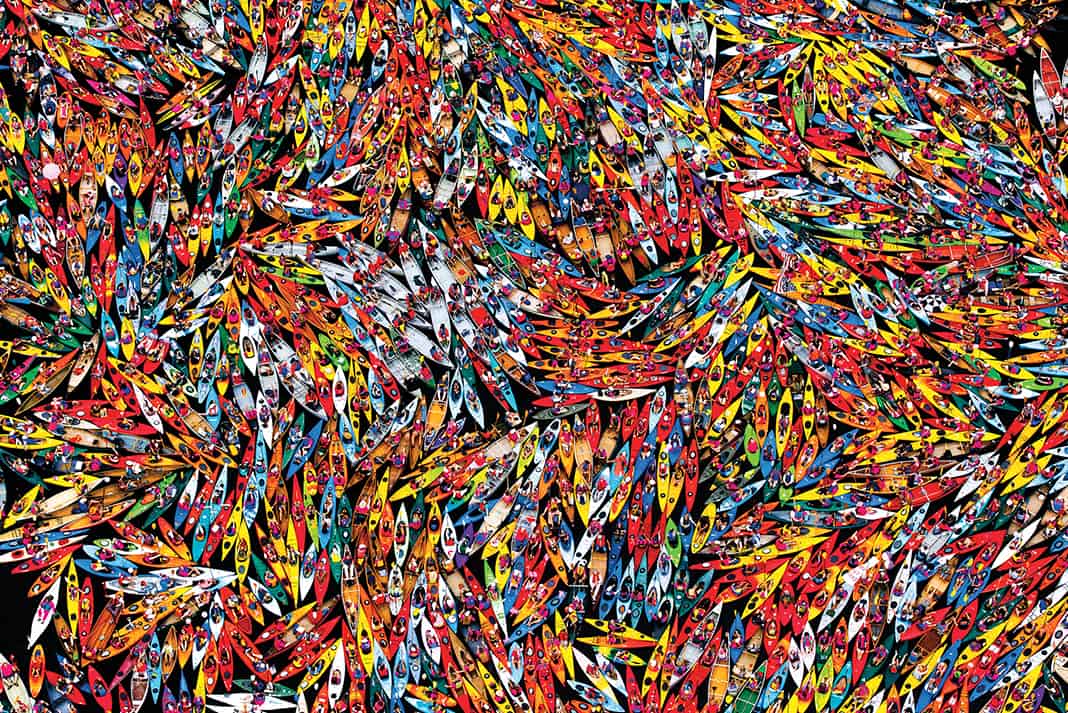
“There’s just too many options. There’s no one best boat,” Dave told me. And he’s right. Perfection is impossible.
Schwartz’s antidote to limitless choice is to get comfortable with imperfection. “Good enough is almost always good enough,” advises Schwartz. “You don’t need to find the best. There’s virtually no difference between the best and any number of alternatives which are almost as good as the best. If you’re looking for good enough, choosing becomes a lot less onerous.”
There’s no single boat boasting the fastest speed, most maneuverability, best stability, lightest weight, greatest durability, prettiest aesthetics and lowest price. There’s no so-called best canoe, yet any canoe is better than no canoe.
So, to all the Daves out there, buy a canoe. You’ll be much happier for it. If you don’t believe the research, just go paddling.
Kaydi Pyette is the editor of Paddling Magazine. For the record, she has more than one canoe. But over the last year she’s applied the “good enough” advice to buying kitchen appliances, a touring bicycle and a 2003 Subaru Outback. So far, she says, good enough is pretty great.
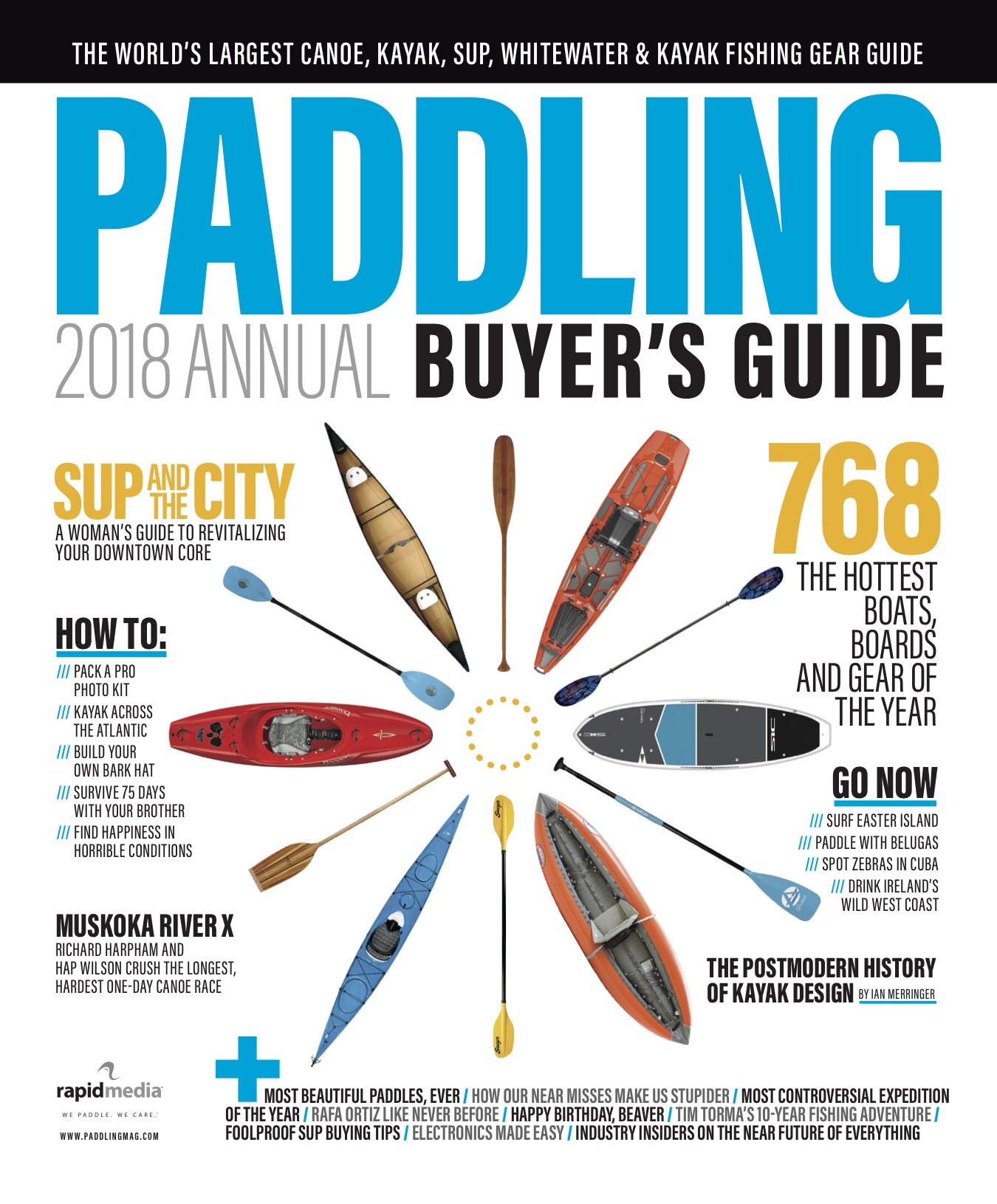



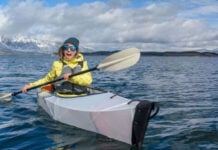
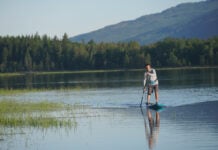
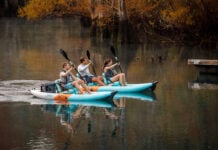
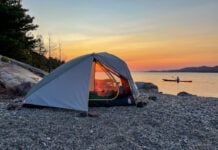


This article on choice is one of the most succinct, clear, spot-on essays that I have ever read. Congratulations! It is a piece of art, and also very true, and now empirically supported.
You guys need to use my approach. I look for the least expensive used canoe of a type that I’d like to try. I buy it, fix it if necessary, and paddle it as much as I can. No worries about depreciation, or any of that. I live near a small lake, buy an annual pass, and can be there in 15 minutes. Paddle and then go home. I guess maybe that’s part of the secret, accessibility. Anyway, happy paddling.
This is my technique also. Well said
Great article!
Canoe’s are not the answer, sorry to disagree with you..
Many people can not sit in canoes, plus they can be flipped way too easy.
I have a WaveWalk kayak.
I have degenerative Disc disease in my neck and lower back, and suffer
from cronic pain…so traditional yaks I can not use.
Best yak I’ve ever owned, most stable and the true stand up and fish kayak.
I can stand, take a nap, and fish all day.
I couldn’t do that in a canoe, it would kill my back and hurt my legs…
I choose comfort, stability, and none stop fishing.
Remember, Try before you buy!
Try as many yaks as you can before you make your choice.
I spent a lot of money before stumbling upon the Wavewalk Kayaks.
And it’s been over 10years of joy to be on the water again, fishing and paddleing.
Great article, Kaydi. Well researched and terrific advice. For the record, what touring bike did you get? (Bikes are my other passion;)